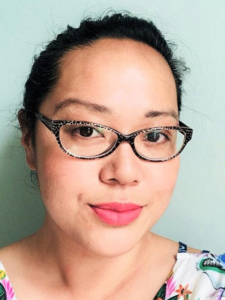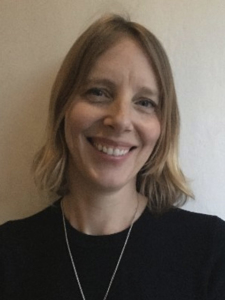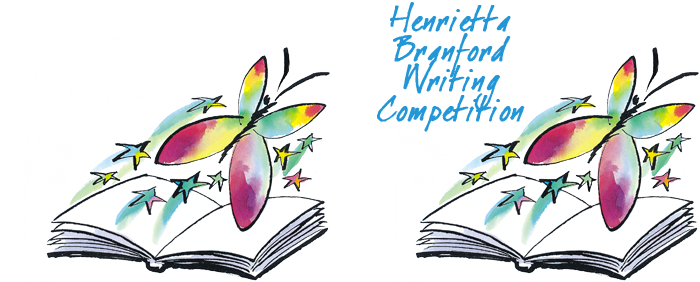Q&A with author Maisie Chan

The Branford Boase Award judges loved the depiction of the inter-generational relationship in your book. How did you approach creating the relationship between Danny and Nai Nai?
Nai Nai’s relationship with Danny was the most fun part of writing this novel. In earlier drafts, I think Danny was a little meaner, he was having more of a tantrum when she arrived in his room. In later drafts that annoyance was less pronounced, but I still wanted to show a substantial change and acceptance by Danny at the end of the book.
To craft that element I used my kid’s relationship to their Spanish grandma who they see infrequently because she lives in Spain. When they were younger they couldn’t speak Spanish (they’re learning now!) and she couldn’t speak English, so there was a lot of food being offered (to show love) and pointing at things to communicate. I also had that experience, as I met my Chinese grandma when I was nearly thirty years old. And when I stayed with her, we communicated without knowing the exact words but we got by.
I wanted Nai Nai to have a youthful personality, I wanted young readers to like her (and they really do!). It was important for me to not posit Chinese things or people as ‘disgusting’ or ‘other’. Danny is annoyed by Nai Nai because he can’t communicate with her, not because she is Chinese. She’s a very lovable character and a lot of people told me that she reminded them of their grandma, even though they’re not Chinese.
What was the thing you most enjoyed about working with your editor Georgia on the book?
Georgia is the best editor I’ve worked with! I don’t get scared when she sends her feedback – I actually welcome it! I trust Georgia when I’m writing to see things that I can’t. She helped to make the Chinese parents more rounded and nuanced in Danny Chung Does Not Do Maths. They were quite harsh 1980s parents in the early draft and she asked me to make them more ‘21st Century parents’ and that was a key thing. A lot of East Asian writers think about the parents they had or had met in the past (as I did) and often they were newly arrived immigrants who had issues of their own. However, as a second generation British Chinese parent myself, I can attest that I am not a strict parent and we tell our children we love them and are physical with them, which may not have been the case in the past. So Danny’s parents are a little bit narrow-minded to begin with but they do tell him they love him and give him physical affection. I’m so glad Georgia gave me that piece of feedback as it made the families seem more modern and contemporary.
Georgia’s feedback always is considered and measured. This is really important as when you’re on a deadline you want to do the best you can but sometimes you aren’t sure of the direction to go. If you have a good editor like Georgia, then you can try things and if it’s not working you don’t feel terrible about it, you can just see it as part of the process and try something else. I’m a fairly organic writer which means I have a rough plan when I begin writing a novel, but often I find out things about the plot and characters once I’ve begun. Georgia seems happy for me to work like that and she was super helpful with the structural elements. Danny Chung was my first novel so it was great having an experienced editor.
I also am a worrier when I’m writing novels. I worry about things like getting the representation right, or whether people will like what I have written. And Georgia is a reassuring editor, she listened to my concerns and was always caring in her response.
Your book touches on stereotypes of Chinese people, though very lightly. How did you manage to keep that so subtle?
The book does deal with micro-aggressions and examines stereotypes but these things are dropped into the story at certain points. The bingo hall was for me a microcosm of Brexit Britain. It was intentional to show that there are those who do not welcome people who are not like them and then there are those, like Mrs Cruikshanks who don’t care where you come from. Danny feels much closer to his nai nai when he realises that she’s got to deal with people like Enid and her cronies.
I did not want the book to be an ‘issues’ book– it’s not about racism but I didn’t want to ignore that British Chinese children and other children of colour experience assumptions about them and are often seen as ‘other’. I kept in mind that the main crux of the story really is about a boy and his grandma, it’s about their growing relationship.
I suppose the title of the book refutes the stereotype that all Chinese people are good at maths or academic. The title was chosen by the publishers and it’s the name of one of Danny’s comics. I think the character of Danny helps to break down stereotypes from the way he speaks and what his desires are, he’s not like the Chinese boys you often see in books. They’re the sidekicks, geeky, not very creative, they wear glasses, they don’t speak up. However, Danny has to learn to speak up for himself and he wants to defend his gran. To me, Danny was just a regular boy and I think simply having him be like that is an act of rebellion!
What are some of the major influences on your work?
I actually re-read Frank Cottrell-Boyce’s Millions and looked at why it worked and what I liked about it before I started to write Danny Chung Does Not Do Maths. I decided that Frank’s characters have a strong voice, often it’s a regional voice. So I set my book in Birmingham and had a few nods to street slang. I also had a fun ensemble cast which Frank always has in his books, his secondary characters are larger than life – and quirky. You also learn something new in a Frank Cottrell-Boyce book and so I wanted to have the maths element in there with the Fibonacci Sequence. And you also learn a little about British Chinese families.
I love British comedies and I wanted Danny Chung Does Not Do Maths to feel like a book about British people and the lives we lead, the main characters just happened to be British Chinese. Danny is a regular boy like any 11-year-old boy and his concerns are relatable.
I grew up watching lots of British films such as the Agatha Christie films (Miss Marple and Poirot), Carry On, On the Buses, Keeping Up Appearances, Absolutely Fabulous, and Richard Curtis films and that kind of comedy has influenced my humour. My books aren’t overtly slapstick funny, or silly funny, but there is a humour in there that I guess I’ve acquired from my parents and through watching a lot of British comedy.
What advice would you give to debut writers?
Your debut year can be amazing as you’re finally going to have a book out, but it can also be quite stressful because you might be anxious about how your book is going to be received, or if you will be listed for prizes, or if you have time to get your second novel finished while promoting your first! There is a lot going on! I joined a debut author group on Twitter which was helpful. I got good advice from the group and we shared resources and experiences. We helped promote each other’s book and I’ve met some of them in real life. I think having a debut mentor might help too, someone who has gone through it before who can tell you what it was like for them.
Take time off to be with friends and family and do non-author things as you can get consumed with trying to promote your book or thinking about writing – it’s quite the rollercoaster! But do try to enjoy it!
Q&A with editor Georgia Murray

What was it about Maisie’s writing that most excited you about her book?
There were so many things! I loved Maisie’s writing straight away – it’s fresh and funny and felt so grounded in real worlds, people and experiences. The dialogue totally sparkled. I was also really intrigued immediately by the title, which at that point was ‘Lychees and Bingo Balls’. I thought, this is going to be something a bit different. And it was clearly going to have quirkiness and humour and a big heart. But I also really just loved Maisie’s astute and honest portrayal of her protagonist and his dilemmas straight off. And a protagonist who we just don’t see enough in children’s books – a young British Chinese boy. He felt so very real. A determined and resilient kid with a real passion – drawing – having those oh-so-familiar battles with parents who just don’t quite get you. In the very first chapter Maisie had brilliantly set up that conflict – Danny’s Ba giving Danny the ‘Chinese Way’ lecture, while Danny zones out and reflects on the self-portraits he’s been doing at school ‘with speech bubbles that said ‘I’m DOOMED!’ in my newly titled comic, Danny Does Not Do Maths’. It totally pulled me in to the story. Then when Danny’s inimitable Nai Nai comes on to the scene, with her grapefruit bowling balls and chicken feet (and of course lychees) and absolute determination to bond with Danny despite his best efforts and her total lack of English, well, I couldn’t not be totally hooked. Maisie’s tender and warmly funny portrayal of the relationship between Danny and his grandma is just wonderful, and for me Maisie’s writing just hit all the right notes in terms of what I love in a great middle grade (or any!) story – the perfect balance of great empathy, warmth, heart, humour and poignancy.
What were the main things you worked on with her as editor?
Looking at Danny’s character was really key. Unpicking his journey of self-discovery – his motivations, his behaviour, his dreams, his discovery that it doesn’t have to be art versus maths, they can complement each other, you can have both … and working on different nuanced aspects of his character to make sure that Danny was someone that readers would really respond to, warm to and identify with. We worked really hard to connect Danny’s character arc with the narrative arc too – the story is all about Danny discovering his own voice and opinions, and confidence in expressing what he loves/doesn’t love, and we needed to make sure the beats of the narrative echoed this. So there were some big structural changes made – looking at the timing and pacing of key events alongside Danny’s own journey and the development of his relationship with his Nai Nai, his parents and friends – alongside other work on secondary characters, making sure they were all fully-rounded and authentic 21st century people; and then lots of really fun and more detailed unpicking of particular scenes to bring out all the drama, humour and poignancy that the book has in spades.
What do you think marks out the most successful writers for children?
Having a really strong sense of what is at the heart of your story, what it is that you want to say and show, and being really passionate about this – this goes a long way (it also helps to give you the resilience to go with the many to-ing and fro-ing stages of editing and working towards a final version that you are really happy with (and hopefully get pleasure and satisfaction out of it!). And this will really help to find that voice that sings, those characters who are living breathing people who speak to readers, the story that moves and inspires and entertains.
What do you find most satisfying about being an editor?
I’ll never cease to feel that it is such a privilege to be a small part of the creative process of the writing of a book. Working so collaboratively with authors on every aspect of their novel is an absolute joy. I love the unpicking of a story from the big structural sweeping elements to the finer detail, taking it through the many stages, all the different conversations with the author that that entails and how we work together to achieve the story that the author really wants to write. That’s hugely satisfying, to see how far a story can come, and how to help an author achieve that vision. And then being the champion for the book in-house and working closely with the wider publishing team to pull together all aspects of the book from the text to the design to the cover to the publicity, marking and sales, this is such an exciting role to have.
What advice would you give anyone wanting to become an editor?
Read widely! Expose yourself to a range of different voices, stories and characters. Loving storytelling and language is key and will stand you in good stead for the many stages of editing as mentioned above. Being open, patient, kind and reassuring in your editorial relationships – every book and author is different and will need a different approach.
Danny Chung Does Not Do Maths, is published by Piccadilly Press, 978-1800780019, £6.99 pbk
Thank you to Maisie Chan and Georgia Murray for answering our questions.



